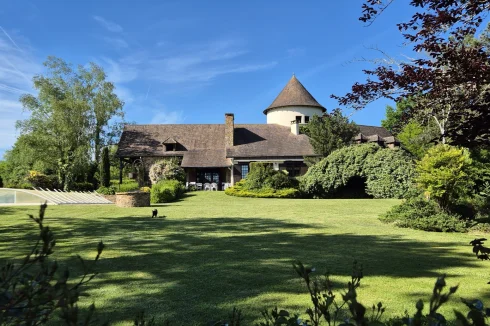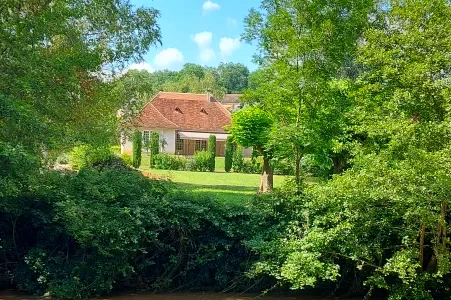Is a Swimming Pool an Extension of a House?
Monday 05 September 2016
Planning rules in France about the right of homeowners to build a swimming pool on their property are not infrequently unclear.
The problem arises because although the French planning code (Code de l'urbanisme) states that extensions to an existing property are permitted, this general principle is subject to local planning regulation, and the definition of what constitutes an 'extension' of a property is only imprecisely defined.
The issue is particularly sensitive around the construction of a swimming pool, as in the past the supreme administrative court in France has ruled that a construction that is not actually attached to an existing dwelling cannot be regarded as a permitted extension.
The 2005 decision of the Council d’Etat stated that a swimming pool "qui n’est pas attendant a un bâtiment à usage d’habitation existant ne saurait être regardée…comme constituant une extension de celui-ci’".
However, a more recent ruling of the Council d’Etat suggests a wider more generous interpretation when a swimming pool might be considered to be an 'extension'.
The case concerned property owners in the department of Vaucluse (Provence-Alpes-Côte d'Azur) who were granted planning permission by their local council for the construction of a swimming pool on their property, with the consent described as an "extension d'une habitation existante, piscine". The pool was located 4.5 metres from the house, but linked to it by an adjacent flagstone patio.

However, the property was located in a zone non-constructible with no new construction other than for agricultural activities. By way of exception the same regulation permitted extensions to existing dwelling on condition that they were closed and covered.
As a result, the local Préfet intervened in the case, asking the local administrative court in Nimes to annul the planning consent, an application to which the court consented.
The local council appealed to the Court of Appeal sitting in Marseille, who overturned the judgement of the Nimes court, arguing that: "contrairement à ce que les premiers juges ont retenu, la piscine et le dallage projetés, qui sont implantés dans la continuité de l’habitation existante avec laquelle elles forment une même unité architecturale, constituent une extension de cette habitation au sens et pour l’application de ces prescriptions".
Somewhat surprisingly the government were not willing to let the matter rest and appealed this judgement to the Council d’Etat. who ruled in favour of the local council, upholding the view of the Marseille court, stating: "Sous réserve de dispositions contraires du document d’urbanisme applicable, une piscine découverte peut être regardée, eu égard à sa destination, comme une extension d’une construction d’habitation existante si elle est située à proximité immédiate de celle-ci et forme avec elle un même ensemble architectural".
Accordingly, in future, whether a swimming pool is an extension will depend on the planning regulations in place and, where there are constraints, the proximity of the pool to the property and whether it can be regarded as a single architectural entity.
Depending then on the size of the pool it will be necessary to submit either a planning application (demande de permis de construire) or a building works declaration (déclaration préalable).
Next Article: Security of Tenure in Rental Properties
Thank you for showing an interest in our News section.
Our News section is no longer being published although our catalogue of articles remains in place.
If you found our News useful, please have a look at France Insider, our subscription based News service with in-depth analysis, or our authoritative Guides to France.
If you require advice and assistance with the purchase of French property and moving to France, then take a look at the France Insider Property Clinic.





